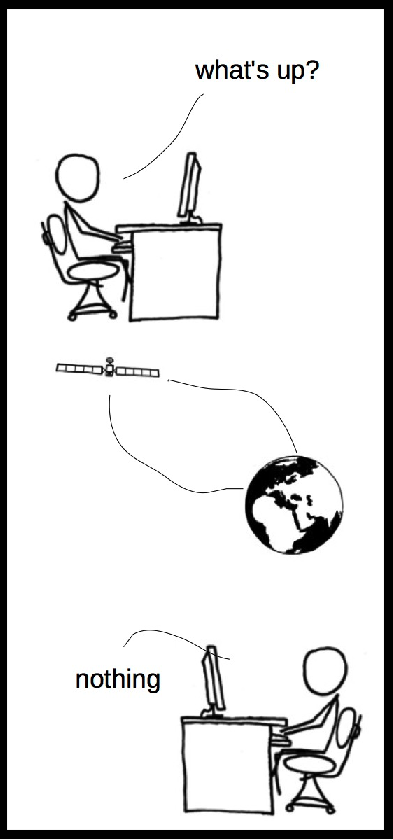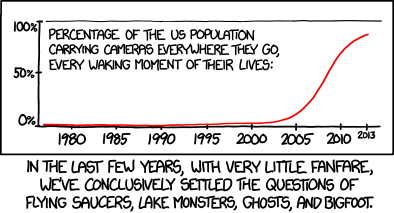Communication on the internet is fundamentally different from communication in the the Real World™ or In Real Life. It is easy for the people who use the internet to communicate to forget just how different it is.

When you press buttons on a computer, those button presses are converted to numbers that are sent through communication signals to another computer. It's amazing that this even happens!
The computer is to chitchat what the papyrus was to oral storytelling tradition. It is a permanent record of what used to be an active dynamic messy and imperfect human process.
There were advantages to the oral tradition. Stories changed rapidly as people emphasized different parts and changed characters to reflect the audience and the time period. Audiences were small. Stories that weren't told were forgotten and people were challenged to continuously re-invent and re-discover the same ideas.
However, there were also advantages to papyrus. The written tradition allowed law, religion, and science to build from a common framework. The quote 'If I have seen further, it is by standing on the shoulders of giants.' is a reference to the process of building on a knowledge tradition made possible by the written word.
So Facebook is an internet company that only exists because it can make a permanent record of button presses. The millions of button presses on millions of computers become data permanently housed in computers. It is so early in the existence of a written permanent continuous record of mass communications. It is way too early to tell what is "sensitive" and what is boring and mundane. There are some easy guesses - phone numbers, birthdays - but there are also curveballs - timestamps, pictures. I suspect that society will be answering the question "What information is important?" for a long, long time. And I suspect that answers are not going to come from Facebook.

Copies are everywhere
Facebook like many tech companies has built a developer api. An Application Programming Interface or API is like the business window at the post office. It's supposed to enable application developers to skip the line. It has special services, and allows companies to use Facebook data to improve services and integrate seemlessly with the Facebook platform. The information / data that Facebook has is also a part of thousands of other companies.
The data that you as a user can get from Facebook is not the same as the data that application developers can get. Your access to your user data is the result of landmark court cases from the European Union. The court ruled that you must be allowed to access your data. These court rulings forced all the social media tech firms to provide you with a place to download any data that they have about you. However, getting access to the data is not the same as knowing what they know about you.
Huh?
Facebook has to share with you what Facebook sees, but not what Facebook has derived. Derived information is information that is guessed about you from the information that Facebook sees. The best way to explain is to think Sherlock Holmes.
Sherlock Holmes: When I met you for the first time yesterday, I said "Afghanistan or Iraq?"
Dr John Watson: Yes. How did you know?
Sherlock Holmes: I didn't know, I saw. Your haircut, the way you hold yourself, says military. The conversation as you entered the room - said trained at Bart's, so army doctor. Obvious. Your face is tanned, but no tan above the wrists - you've been abroad but not sunbathing. The limp's really bad when you walk, but you don't ask for a chair when you stand, like you've forgotten about it, so it's at least partly psychosomatic. That suggests the original circumstances of the injury were probably traumatic - wounded in action, then. Wounded in action, suntan - Afghanistan or Iraq. Source
Sherlock Holmes saw a haircut, a stance, a limp, a tan. To everyone else, the information was meaningless. To Sherlock Holmes, it said "Afghanistan or Iraq".
Cambridge Analytica famously derived user's big five personality scores from their Facebook data. This is an informed or educated guess about you based on what you post. If you buy certain things at certain times, it might tell a Data Scientist that you are muslim or female or pregnant without checking a box or signing up for a service. Data practitioners are wrestling with the morality of derived information and it's implications.
Summary
There is a massive amount of information out there about each and every one of us. There is both the information that we created and the information that smart people can guess about us. No one knows whether that information is important information, whether it is a good or a bad thing that it exists, or how many copies of it exist.